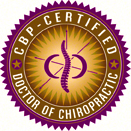Resveratrol and Curcumin: Reversing a Paradigm
 Thursday, October 21, 2010 at 8:36AM
Thursday, October 21, 2010 at 8:36AM

Dr. Lynn Toohey, Ph.D, Nutrition
Colorado State University in Ft. Collins, CO
Research Consultant NutriWest
INTRODUCTION
Very recent research has shed light on an age-old question of whether or not you should “boost the immune system” when an autoimmune condition exists. The theory is that if nutrients are increasing T cells, you want to avoid increasing them when you have an aberrant immune system that sends those T cells to attack self tissue. But why then, have nutritional supplements that are known to increase T cell activity also been able to have favorable effects on autoimmune conditions? This is a conundrum that is being elucidated by the fairly recent discovery (2005) of a set of helper T cells called Th17.
It is becoming apparent that the old paradigm of trying to shift T cell populations to predominantly produce either Th1 or Th2 to favor either immune or autoimmune conditions is an incomplete model. With the discovery of Th17, it has become known that this T cell is a master modulator, and that there is a new paradigm for looking at immune and autoimmune disease.
More on the intricate pathways of Th17 in future articles, however, suffice it to say that the huge strides being made in this area of research are reflected in two recent articles (currently in press) that studied the effect of two major nutritional influences (resveratrol and curcumin) on Th17.1,2
The first article is “The regulatory role of resveratrol on Th17 in autoimmune disease”, and the second article is “Curcumin has bright prospects for the treatment of multiple sclerosis”1,2, demonstrating by their titles that these nutrients have some interesting potential when it comes to influencing the immune system.
Reversing the paradigm:
Let’s go back to the conundrum of whether or not we should “boost the immune system” when an autoimmune condition exists. It depends. Looking at resveratrol first, it is clear from this emerging research that since resveratrol has the ability to both increase Th17 BUT ALSO increase regulatory T cells (called Tregs), that it can stand to have a profound effect both on the immune system AND autoimmune conditions. In fact, researchers have stated that:
“This review will focus upon the potential for the use of resveratrol, a natural plant compound that has already been shown to be a potent anti-inflammatory compound, as a complementary therapeutic for MS that increases the activity of Tregs, even though it also increases development of Th17.”1
The article points out that Th17 cells are necessary for complete immunity because the cytokines that they produce are critical to the elimination of the pathogen. However, the activity of Th17 has to be balanced with development of the regulatory T cells (Tregs), or the immune system can stand to lose control. When activity of Th17 is excessive and not balanced by Tregs, there is increased risk for autoimmune disease.
“Therefore, in many autoimmune diseases, Th17 activity exceeds that of Tregs. Therapeutics for treatment of autoimmune diseases such as MS have focused upon immunosupporession, immunomodulation, or even immunoablation of effector cells such as Th17…very few approaches have attempted to therapeutically increase immune regulatory cells such as Tregs in the treatment of autoimmmune disease”.1
Even though very few approaches have considered focusing on increasing regulation of the aberrant immune system in conditions like MS, that is exactly what these researchers are proposing: by studying nutritional influences such as resveratrol, which can influence regulatory T cells, there is a potential to reverse not only a paradigm of how we look at the immune cascade, but also to reverse a paradigm of how we look at treatment for an autoimmune cascade.
Hence the focus on resveratrol and the ability of resveratrol to increase regulation of the T cells that put the brakes on an over-reactive immune system. Now, let’s take a look at the other nutrient in focus, curcumin, and the other article also in press, “Curcumin has bright prospects for the treatment of multiple sclerosis”.2 This second article points out that Th17 cells are considered as a key immunological player for the pathophysiological process of MS, and that curcumin significantly affects this pathway in a favorable manner.
Curcumin is another ingredient that is being considered for modulation of the immune system by way of its effects on Th17 and regulatory T cells. Curcumin has a lipophilic property, being able to pass through all cell membranes and the blood brain barrier (defects in the barrier are correlated to later stages of disease in MS). Through its various properties, including “anti-inflammatory effects, it may have a role in the cure of MS”.3
Researchers in the curcumin article by Xie2 previously demonstrated that curcumin decreased the clinical severity of MS in the animal model, and decreased inflammatory cell infiltration in the spinal cord.
Good for nerves/immune system
We have established that resveratrol and curcumin hold great potential for immune regulation, and especially for an autoimmune disease such as MS, where the myelin of nerves is destroyed. In addition to the effects that these nutrients have on the autoimmune activity, these natural ingredients also support nerve health in general. For instance, curcumin’s overall effect on neuroglial cells has been described as “decreased astrocyte proliferation, improved myelogenesis (growth of new myelin sheaths around the nerve bundle), and increased activity and differentiation of oligodendrocytes”.4 It is working on many different levels, as does resveratrol. They both act as antioxidants and correctors of mitochondrial dysfunction too.
As another example, scientists have explored “other indirect pathways by which resveratrol can exert its neuroprotective abilities”, and they have discovered that resveratrol affects an important enzyme and is a “unique pathway by which this compound can exert its neuroprotective actions”.5 This means that there is more than one mechanism by which resveratrol is believed to exert favorable effects on nerves and the nervous system.
Other nutrients for nerves:
Sulforaphane is found in high concentration in broccoli sprouts. The Journal of Neuroscience reported that it activated an antioxidant response and “conditions neurons against oxidative insult”.6 Several sources confirm that sulforaphane protects the brain and brain neurons.7
Ginkgo biloba has been called a “neuroprotector”, and the action of protection is described as the ability of ginkgo to detoxify, act as an antioxidant, and normalize energy transfer in brain neurons.8
Quercetin is called the most important flavonoid by some, and in addition to many other biological benefits, quercetin “contributes significantly to the protective effects of neuronal cells from oxidative stress-induced neurotoxicity”9
SUMMARY
There are several nutrients that support nerve health, and now we know that evidence is emerging that several nutrients (such as resveratrol and curcumin) may even favorably influence the immune attack on the nerves in a condition like MS. Evidence is also accumulating that our perspective of how ingredients affect the overall outcome of the immune system activity is changing, and that we cannot simply say a nutrient “boosts the immune system” and should be avoided in autoimmune conditions for support. Regulation is a major factor, and nutrition could hold a key to that regulation.
References
- Petro, T. Int Immunopharmacol. 2010; doi:10.1016/j.intimp.2010.07.011 (in press).
- Xie, L. et al. Int Immunopharmacol. 2010; doi:10.1016/j.intimp.2010.07.013 (in press).
- Barry, J. et al. J Am Chem Soc 2009;131:4490-8.
- Ambegaokar et al. Neuro Endocrinol Lett 2003;24:469-73.
- Zhuang H, et al. Ann N Y Acad Sci. 2003 May;993:276-86.
- J. Neurosci. 24 (2004) 1101–1112.
- Brain Res. 2010 Jul 9;1343:178-85.
- Head KA, Altern Med Rev, 2006; 11(4): 294-329.
- Filomeni, G et al. Neurobiol Aging. 2010 Jun 29.
 CBP Seminars | Comments Off |
CBP Seminars | Comments Off | 

